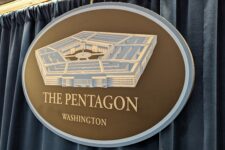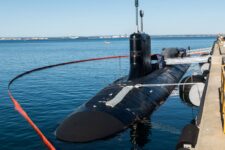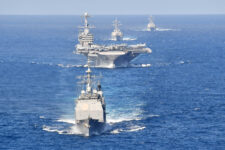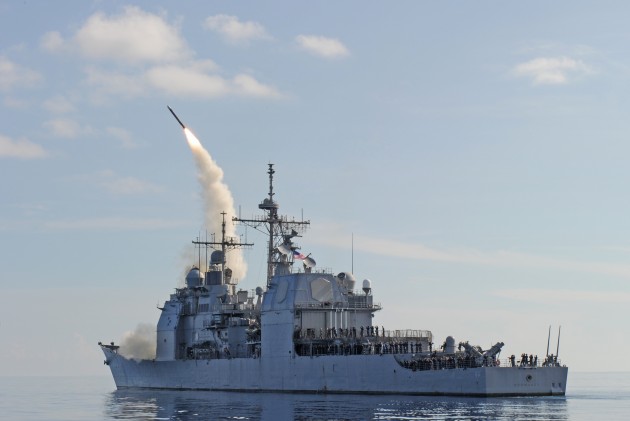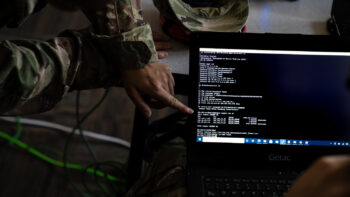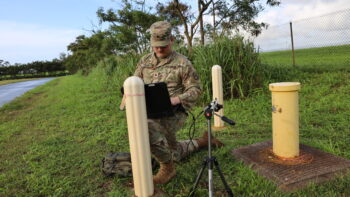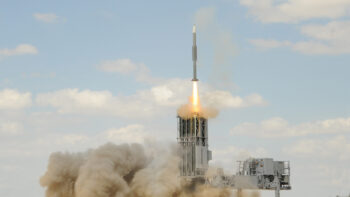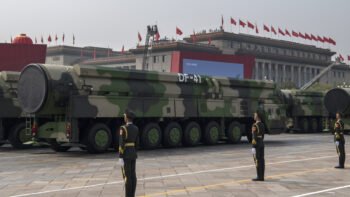President Obama has made it clear that Syria crossed a “red line” by using chemical weapons against its own people. The proposed remedy is to execute a limited strike to change the behavior of the Assad government, but without putting troops on the ground, without regime change or without an international stamp of approval.
Congress now must decide whether or not to endorse the President’s proposal.
The reason for this action is not grounded in any argument regarding the geopolitics of the region or the recent history of the area – the flawed Arab Spring, the American exit from Iraq or the coming actions in Afghanistan – and is based on the notion of international norms being enforced by the United States and whomever wishes to join in.
Syria is one of the few nations which have NOT signed the Chemical Weapons Convention, the primary international norm governing these weapons along with the original 1925 Geneva Protocol barring the use of “asphyxiating, poisonous or other gases, and of all analogous liquids, materials or devices. We may think we are enforcing the CWC but Syria believes it reserves “the right to respond to a nuclear attack from Israel with our own WMD.”
President Obama argues forcefully that, “we are the United States of America, and we cannot and must not turn a blind eye to what happened in Damascus. Out of the ashes of world war, we built an international order and enforced the rules that gave it meaning. And we did so because we believe that the rights of individuals to live in peace and dignity depends on the responsibilities of nations. We aren’t perfect, but this nation more than any other has been willing to meet those responsibilities.”
The question is how does one do any of this with a limited strike and guarantee the results?
I will not argue whether or not the US should lead a coalition to change the regime in Syria or whether the US should or should not remove chemical weapons by force from Syria (assuming that can even be done at this late date).
The question is the conceptual definition by the administration that a limited strike can achieve the stated outcome, notably one being done by a power which does not live in the region and is not explicitly supported by the neighbors.
An added complication is the president’s decision to seek the authorization of Congress. Can Congress even authorize a limited strike, whatever that means? After all, this is not a declaration of war.
One could note in light of the Budget Control Act — otherwise known as sequestration — that if the Administration and the Congress determine that Syrian action is required, they should put new money into the budget to support such actions, for any limited strike will have unknown consequences in the region and cost way more than a few cruise missiles popped into Syria.
That would mean a budget supplemental passed as part of this joint effort to strike Syria.
But the most important consideration is that military operations simply do not work the way the President has characterized his intended plan. The enemy gets a vote. One is always dealing with a reactive enemy, and in this case you are giving him a long warning time to get ready to act in ways, which will defeat the meaning and effect of any strike. If the target is not Syria but the behavior of Assad, what limited strike does the President have in mind to change behavior?
The President could call in his good friend President Clinton and review the history of limited strikes from his time in office. The Iraq no-fly zone was a limited but clear operation, which did virtually nothing to change the behavior of the Iraqi leader. The cruise missile strikes against Osama Bin Laden – a decision by the President not to use boots on the ground which would have probably worked – left the terrorist in good shape and only motivated Al Qaeda even more to carry out the September 11th operation.
The Assad regime has options to horizontally escalate the crisis and to respond to any Obama limited strike. With the clear backing of Iran, with the engagement in various ways of Saudi Arabia, Turkey, Russia, China and others, any strike by the United States is part of the ongoing context of the crisis, and not a definite and final statement.
One thing the Administration should learn from Libya is that an operation done in one period of Libyan history for a few months is not the story. The relatively successful air operation against Libya, led to the loss of ManPads (portable anti-aircraft weapons), precisely because boots did not go on the ground. Then there was the Benghazi defeat. Now Libyan pipelines are being shut down by insurgents to hold the Libyan oil industry at risk. Even when “leading from behind” history continues and a strike is simply a moment in history, which is ongoing, and the continued engagement of the striking power(s) remains centrally to shaping an effective outcome.
But the broader picture in the Middle East is really the most telling aspect of determining how limited a strike can be: is throwing cruise missiles or air strikes into the current situation a limited act or is it like throwing matches into a tinder box?
Honestly, it is difficult to know beforehand, but that really is the point. The only limits are in the mind of the Washington decision maker, and not the players in the region.
If dealing with Syria is crucial, and one could argue that it is, the key player is Turkey, and the leader in dealing with Syria is clearly Turkey as well. Earlier this year, NATO sent Patriot missiles to Turkey to aid in Turkey’s defense against Syrian threats. Syria is both an external and internal policy problem for the only NATO partner directly involved in the Assad meltdown.
Turkey could shape an effective response, and NATO is the coalition obviously most involved. This is the path which makes sense for strikes, limited or not, can be part of reshaping Syria’s future.
There is no such thing as a limited strike in a fluid situation like Syria; but there can be effective tools to support coalition actions, in this case with Turkey as the lead player.
The White House earlier asserted that the Russians did not know their own interest in Syria. This was an amazing statement, and Putin and the Russian government have played the Syrian crisis nicely to their advantage. And given the meltdown of the Russian reset, why would US limited strikes against Syrian air defenses or air assets of various kinds not be met with the Russians simply restocking the Syrian inventory, and this time with better equipment?
A very rapid escalation could ensue from Obama’s limited strike. But even more troubling is the state of the Western stockpile of arms. The Libyan experience also showed how rapidly the stockpile of precision weapons could be depleted. The Syrian operation could well open up opportunities for the Iranians to take advantage of the West going Winchester and shape a mobilization opportunity of their own.
What is clear is that a limited strike is limited only in the eye of the beholder; it is not a fixed point of military strategy nor effective Middle Eastern geopolitics. The Obama administration needs to reset its approach, and do the art of the possible with Turkey and other stakeholders in the region who support Western objectives.
Robbin Laird, a member of the Breaking Defense Board of Contributors, is an international defense consultant and former National Security Council staffer.
From Boeing’s struggles to inflation relief funds: 5 industry stories from 2024
Making a year-end list in which she forces references to Taylor Swift songs for no reason has basically become reporter Valerie Insinna’s favorite Christmas tradition.





